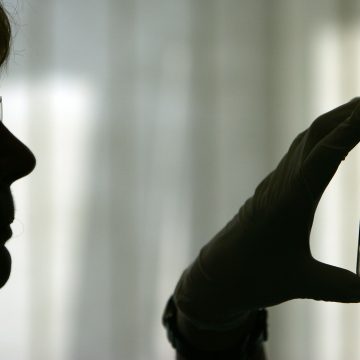
By: LekshmiSajeev
by LAUREN CODLING
AN Asian victim who contracted life-threatening diseases due to contaminated blood spoke of his experiences during a public inquiry on Tuesday (18).
Suresh Vaghela was infected with the HIV virus and hepatitis C after he received treatment for haemophilia, a condition which impairs the body’s ability to make blood clots.
His case is one of thousands, after it emerged that people with haemophilia and other bleeding disorders were given blood infected with HIV and hepatitis viruses, during the 1970s and 1980s.
It is estimated that more than 5,000 people were affected – although it is alleged that the actual figure could be 30,000.
The inquiry, currently sitting in Leeds, has examined why men, women and children in the UK were given infected blood and how the authorities responded.
The 55-year-old was treated with Factor VIII products, a clotting agent intended to help blood clot, in the late 1970s.
Referring to the treatment as “a magic potion which gave him greater freedom”, Vaghela said Factor VIII initially had a positive impact on him.
“It was the treatment of the time,” he said. “In those days, you had a bleed and were stuck in a bed for weeks and you’d be excluded from life. With (Factor VIII), you’d have a jab and be up and about within a couple of days.”
His brother, a fellow haemophilia sufferer, also received the treatment.
Claiming he was not informed of any risks, Vaghela had several bouts of treatment and had no concerns of any consequences.
However, in June 1983, he received a letter from Coventry and Warwickshire Hospital which requested he attend a blood test after publicity regarding contaminated blood became widespread.
Despite the fears, Vaghela did not believe he had been affected. As he regularly endured blood tests for his previous illnesses, he did not think it was serious.
“When people mentioned AIDS, I thought that wouldn’t happen to me – it was pushed to one side,” he said. “The doctors said it was to safeguard everyone.”
However, he was informed that he was positive for the HIV virus. Told over the phone, Vaghela recalled the nurse being “nonchalant” as she revealed his results.
“I was told to speak to my family and share the information and I asked about treatment and they told that nothing could be done, and I only had three months to live,” he said. “It was very blasé, the way they told me. They didn’t tell me to come in for therapy or counselling or any other kind of support.”
Around the same time, his brother was also told he has also been infected with HIV and had only months to live. In a panic, Vaghela’s brother ran away to London and said his last goodbyes to his friends.
“He had to get away from it,” Vaghela, who grew up in Preston, Lancashire, said.
Despite his diagnosis, Vaghela said he did not receive treatment or support until 1989.
And, though he had symptoms for several years, he only discovered he had contracted hepatitis C in 1993. Although doctors had suspicions, Vaghela said he was never told about them.
Speaking on the impact it has had on his life, Vaghela said it had “cost his family everything”.
Around 1990, he and his wife Rekha were forced to abort a child after they realised they would not be able to cope due to Vaghela’s health problems.
One of the more distressing factors was the stigma that Vaghela and his British-Indian family faced. He claimed the family feared they would be shunned if the Asian community knew about the illnesses.
“Throughout our lives, we had to keep it a secret as we knew we’d be ostracised,” he said. “It was an isolated life. For everything else, I could stand and fight – but not for this.”
He also had to leave his beloved job as a librarian in Preston, as the physical effects of his illnesses was unbearable.
Throughout the years, Vaghela has endured several courses of treatment to rid him of hepatitis C. Although he was eventually cleared during the fourth course in 2010, his body has suffered irreparable damage.
His liver has been badly affected, and he suffers from osteopenia, when bones are weaker than normal. He also recalls losing his memory during bouts of treatments.
In some instances, he was unable to recognise immediate family members.
“I would recognise their faces but would have to place them in a point in time to remember them,” he said.
As years passed, Vaghela attended many funerals of fellow haemophilia sufferers who had died from infections passed on through Factor VIII.
Approximately 3,000 individuals who had received the treatment have died.
At one point, Vaghela attended around 70 funerals in one year. One of those included his brother, who passed away in 1995.
“The heartache was too difficult to cope with,” he said. “There came a point when I went to so many funerals, you automatically think you will be next.
“It is like Russian roulette and one day the bullet will come for you.”
Vaghela admits he is worried for his future. Stating the viruses have taken away his “immediate and future happiness”, he has concerns that he and his wife will be left alone when they grow older.
“The future has been taken away because we didn’t have children,” he said. “What a price to pay for someone else’s mistake.”
As Eastern Eye went to press, the inquiry was expected to continue.
https://www.infectedbloodinquiry.org.uk/
